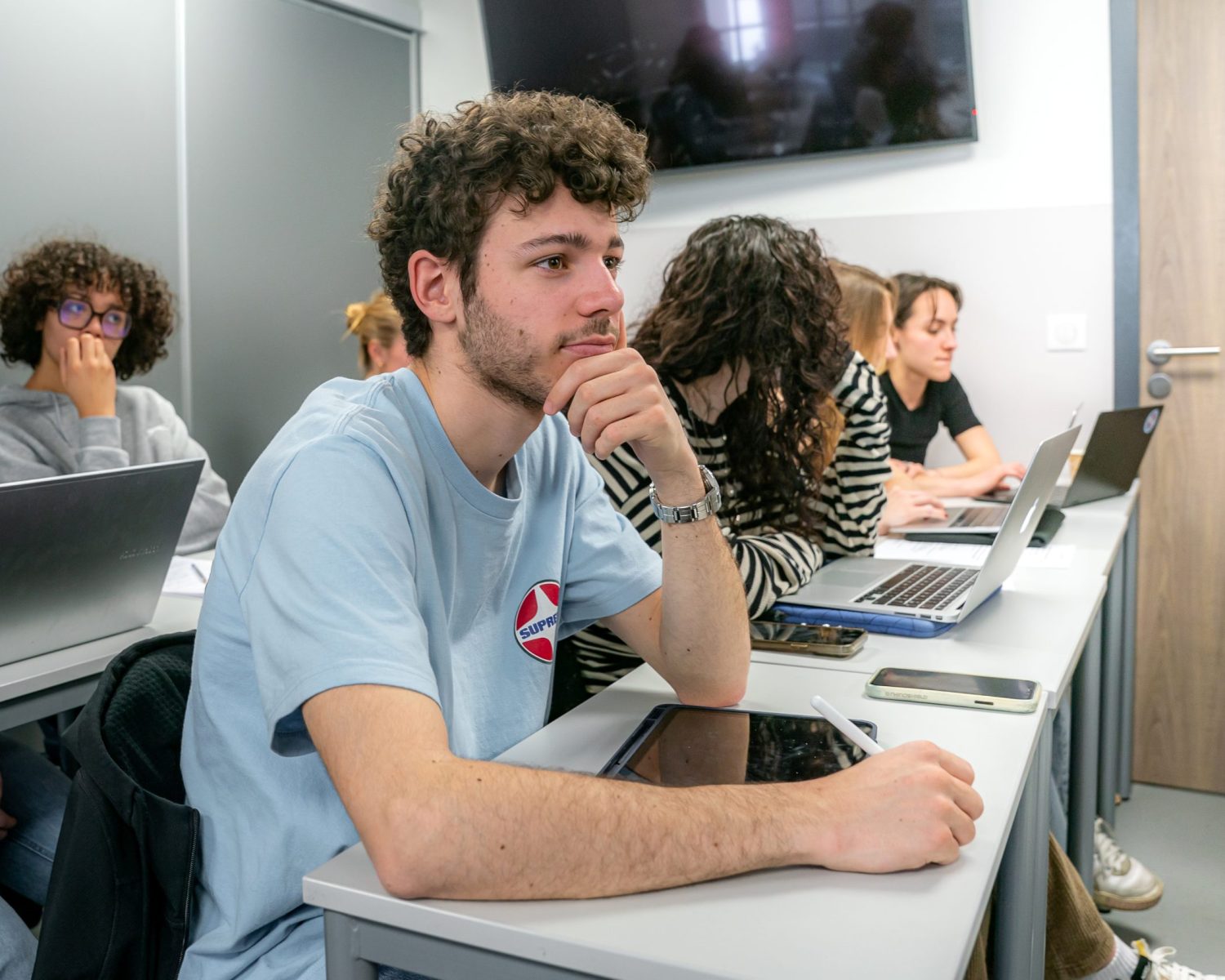Work placements
From the very first year, seeking employment opportunities is a core part of the approach at EPP. The ‘Professional Skills’ module provides students with tools to improve their knowledge and understanding of the psychology sector, and develop their ability to operate in a professional environment. From the second year onwards, students have to complete work experience so that they can become more familiar with the world of work. From the third year onwards, placements are compulsory, and a set number of hours need to be completed to move up a year. At the end of the fifth year, EPP students will have completed at least 1,200 hours work experience during their course. From the third year onwards, the course is designed as a work-study programme, alternating between classes and placements. The summer also presents an opportunity for students to complete additional placements, especially abroad. Finally, from the fourth year onwards, students are given the option of applying for an apprenticeship.


Ensuring high-quality employment opportunities
During the course, students are given specific classes to help them plan their careers and develop their network. EPP also offers its graduates job seeking tools through its network of alumni (workshops, guides, contacts). Alumni network: EPP Alumni
EPP Alumni works to maintain close ties between graduates and their former place of study, helping each of them to develop their professional network. It plays an active part alongside EPP during events such as Open Days and conferences, and also runs an annual careers forum so that students can meet qualified psychologists who are former graduates. These encounters enable students to discover different types of careers, and start building their own network.
Job prospects after EPP
Psychologists are change agents who play an essential part in personal and societal development. They work with people of all ages – children, teenagers and adults – and in a wide range of normal or pathological situations, from cradle to care home.
They can work in a wide range of settings: companies, schools, training organisations, hospitals, institutions, etc. Being a psychologist opens doors to a wide range of careers, such as clinical psychologist, head of recruitment, HR director, corporate consultant, communications adviser, trainer. Each setting shapes a new approach to practising psychology.

Some areas of professional psychology :
Working in hospitals (general or psychiatric), medico-psycho-pedagogical centres, maternal and child protection units, nurseries, care homes, etc.
Providing organisations, local authorities and families in difficulty with technical expertise and specific tools.
Working with legal institutions (police force, prison service, etc.) to provide expertise to all parties (magistrates, lawyers).
Working closely with pupils, teachers and trainers in schools, or adult education centres.
Working in recruitment, human resources management, stress management, training, treatment, well being in the workplace, skills assessments, etc.
Working within a private practice receiving psychotherapy patients and/or conducting psychological assessments. May specialise in children, teenagers, adults, couples or groups.
Providing care to victims of crime or potentially traumatic events. This work involves taking into account the relationship between the victim and the legal system.
- Teaching students in full-time education, and sharing expertise and experience with them, either as a teaching assistant or a research professor (PhD required).
- Offering continual professional training to practitioners seeking to broaden their skills throughout their career.
Working for a company or recruitment agency on sourcing, conducting interviews, or recruitment decision-making.
Graduates working as human resources officers or managers are responsible for managing all or part of the staff members in a company. This includes recruitment, pay, appraisals, and well being at work.
Self-employed, or working for a consultancy, our graduates share their expertise in occupational and management psychology.